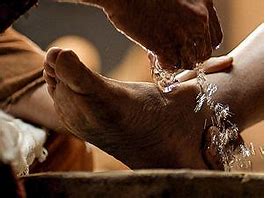I am convinced that many Christians functionally read their Bible as if it is about them. For example, the temptation of Jesus by the devil in the wilderness is a well-known event. What many Christians do (I have done this in the past) is they read Matt 4:1-11 and ask the question, “How does this passage apply to me?” What they take away many times is this: Jesus memorized the Scriptures; during his hour of temptation he quoted Scripture to keep from sinning; therefore, I should memorize Scripture and quote it during times of temptation to keep from sinning.
Now let me say that we should memorize Scripture, and Scripture is a weapon against temptation (see Ps 119:11 and Eph 6:17). However, the temptation of Jesus in the wilderness is not primarily about our need to memorize Scripture for our times of temptation. In other words, the story of the temptation in the wilderness is not about us. But making it about us is precisely what many Christians do with the passage.
In reality, the story of Jesus in the wilderness is story about Jesus! It is a story about how the “second Adam,” Jesus Christ, overcame temptation in the wilderness. As one author states, “The first Adam was tested in the God-blessed garden and fell. The second Adam was tested in the God-cursed desert, and won.”
The temptation in the wilderness is about what Jesus has done, not about what we need to do.
Once we establish what and who the story is about, and why the Gospel writer put the story in his Gospel account, then we can move to “how does this apply to me.” In this passage, what’s in it for me is that unlike Adam who failed, Jesus was victorious; he proved it by not yielding to the temptation. Jesus’ defeat of temptation earned him the righteousness the law demanded. This righteous life that Jesus has earned is sometimes called by theologians Jesus’ “active righteousness” (or “active obedience”).
And here’s why “active righteousness” matters. If Jesus came to earth on the morning of Good Friday, went straight to Golgotha, died on the cross, rose, and left, he would have forgiven our sins. But this is only half the matter: we would be forgiven, but not righteous. 
Our spiritual bank account would go from negative ten zillion to zero. But because Jesus overcame the temptation in the wilderness—and the many other ways in which he fulfilled the laws demands by his perfect obedience—our spiritual bank account goes from zero to positive ten zillion. We now have, as the apostle Paul puts it: “not . . . a righteousness of [our] own derived from the Law, but that which is through faith in Christ, the righteousness which comes from God on the basis of faith, . . .” (Phil 3:9). 
We are not just forgiven but righteous because Jesus was victorious in the desert—that’s what’s in it for us.
The point of all this is that when you read your Bible, don’t first look at “how it applies to me.” First look at what the passage says about God, particularly what it says about Jesus and the gospel; for as one has said, “Everything in Scripture is either preparation for the gospel, presentation of the gospel, or participation in the gospel.” And once you find the Story of stories (i.e., the Gospel), then you can see where your story (i.e., how the passage applies to me), fits in.
Pastor Dan Burrus